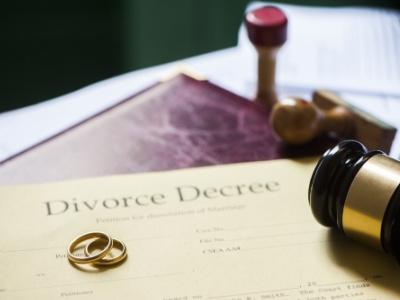How Is a Divorce Decree Enforced in DuPage County?
 Divorce can be an arduous process. There are so many things that can potentially be the cause for an acrimonious fight with your spouse, from custody settlements to alimony payments to living arrangements. Once all of these and more issues that a divorcing couple needs to figure out have been discussed and agreed upon, the two spouses have a divorce decree, which describes what is expected of both sides emotionally, physically, and financially. But if a spouse refuses to follow this divorce decree, it can make everything problematic. If you are divorced and your ex is not complying with your divorce decree, a DuPage County, IL divorce attorney will be able to guide you through the options at your disposal and may be able to help enforce the decree through court proceedings.
Divorce can be an arduous process. There are so many things that can potentially be the cause for an acrimonious fight with your spouse, from custody settlements to alimony payments to living arrangements. Once all of these and more issues that a divorcing couple needs to figure out have been discussed and agreed upon, the two spouses have a divorce decree, which describes what is expected of both sides emotionally, physically, and financially. But if a spouse refuses to follow this divorce decree, it can make everything problematic. If you are divorced and your ex is not complying with your divorce decree, a DuPage County, IL divorce attorney will be able to guide you through the options at your disposal and may be able to help enforce the decree through court proceedings.
Failure to Carry Out Divorce Decree
Unfortunately, while divorce ends with a clear settlement where both parties receive the details of what is expected of them, ex-spouses do not always carry out their end of the agreement. Your ex may have stopped their child support payments, or have decided that alimony is no longer relevant. If this has happened, there are legal steps to take to enforce your ex’s compliance with the information.
An experienced divorce lawyer will be familiar with the legal options available to us. There are also legal options available that can be used to compel parents to follow their child custody or parental responsibility orders.
What is a Contempt Proceeding?
If someone is not holding up their end of a divorce settlement, the court can compel them to do so through something called a contempt proceeding. They need to be able to prove the following four reasons for the proceeding:
-
Court-ordered divorce decree: As long as someone can present a detailed divorce decree, there is no statute of limitations on enforcing it in the State of Illinois. If the decree is vague, a judge could decide to dismiss the claims of a violation and then revise the decree to make it more detailed.
-
Violation: The disputing party needs to prove that violations occurred several times. If their ex failed to fulfill their obligations as stipulated in their divorce decree only once, a judge would generally not hold that ex in contempt.
-
Aware and able: Both spouses should be considered aware of the details of their divorce decree because they both need to be present or to sign the decree when it is issued by a judge. But if a spouse is unemployed or ill, they may be considered unable to make payments or carry out their parenting time. If one of the spouses is considered unable to fulfill their divorce decree, a judge would not begin contempt proceedings.
-
Intentional disobedience: The disputing party needs to prove that all failures to comply with the divorce decree have been intentional.
The court has the authority to impose various penalties in such a case, including probated jail sentences for failure to enable the other parent’s parenting time and wage garnishments (meaning, a sum would be removed from a salary) for failure to fulfill child support or spousal support agreements.
Schedule a free consultation with a Naperville, IL Divorce Lawyer
If your ex is not complying with your divorce decree and you are looking for ways to compel them to do so, a DuPage County, IL contempt proceeding attorney can help make sense of the process. Call Pesce Law Group, P.C. at 630-352-2240 today to schedule a free consultation.











 630-352-2240
630-352-2240


